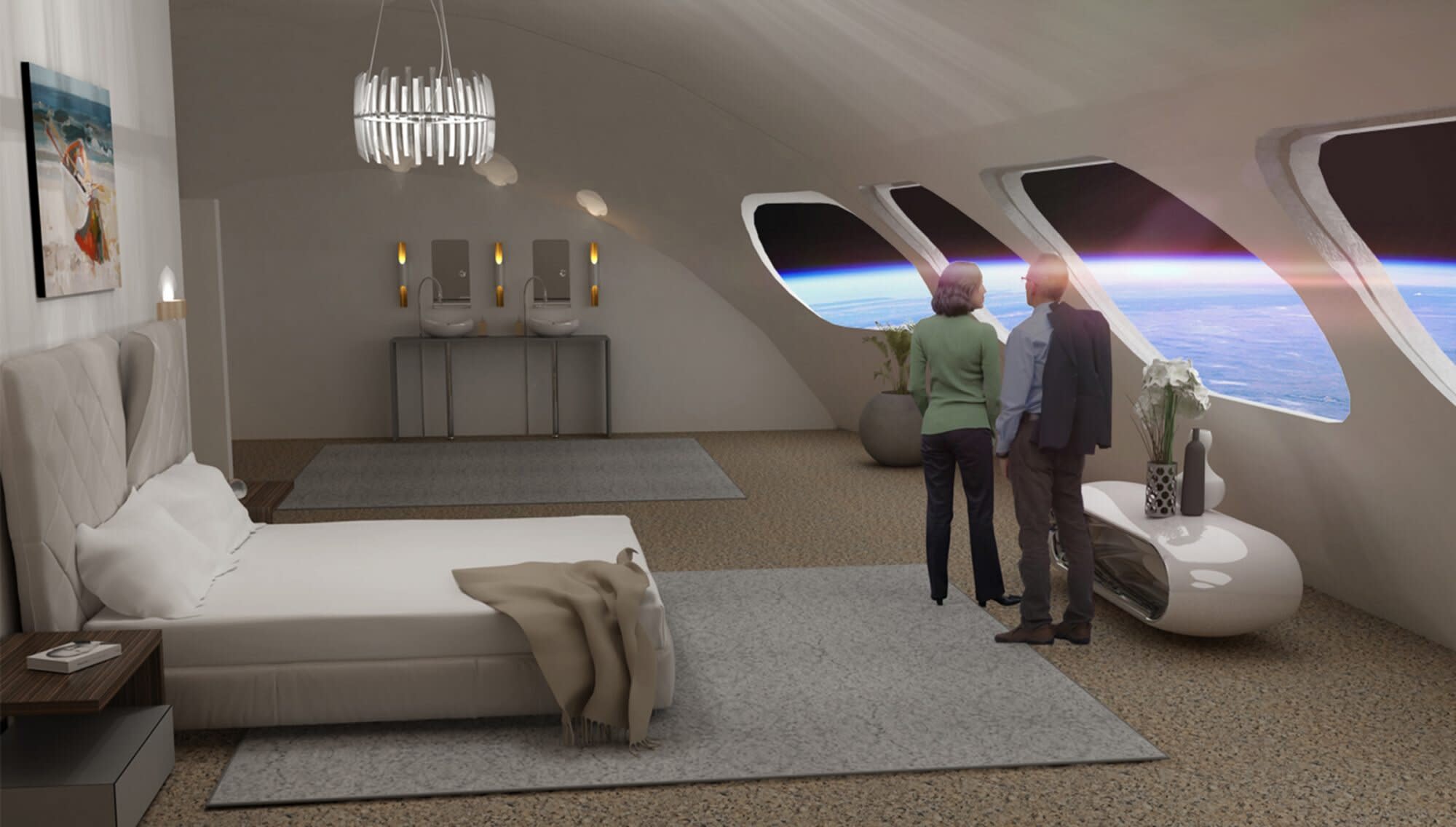
courtesy of voyager station
Have you always dreamed of seeing space? Space lovers could mostly just think of enjoying the galaxies through the experiences reported by astronauts and photos or videos provided by space agencies. But now there is something new for those striving to visit the galaxies to look forward to: according to the Daily mail, the Orbital Assembly Corporation (OAC) will begin construction in 2025 on the world’s first hotel in outer space. Not only does this vacation spot of everything from this world have everything from restaurants to movie theaters, but it will also revolve around 400 guests around the globe with its unique infrastructure.
This hotel, formally called the Voyager Station, will rotate in a large circle and have a similar gravity to the lunar surface. Though it may already seem far from the hotels here on earth, it is actually supposed to look like a cruise ship-like experience – including a health spa and themed restaurants.
Related: NASA uses its Hubble Space Telescope to rescue endangered whale sharks
However, you need to be patient if you want to plan a visit. The station will only open its doors in early 2027, but it contains modules attached to the outer rings of the space station. There will be 24 modules operated by the Gateway Foundation for exclusive areas for crew, air, water and power. Some also have gyms, kitchens, restaurants, bars and other needs for people who will be staying longer in the hotel. And thanks to Voyager Station, travelers and space explorers will be able to take advantage of this new travel destination. Private companies, governments and agencies (like NASA) can even rent and buy modules to create their own villas or use the area as training for their astronauts.
“This will be the next industrial revolution,” said John Blincow, founder of the Gateway Foundation. Although he has noted that it will innovate the space industry like never before, there are still formalities that still need to be worked out – mainly the gravity aspect of travel. “People need gravity so that their bodies do not fall apart,” Blincow said, noting that this travel experience can help researchers understand how much gravity our bodies really need.
